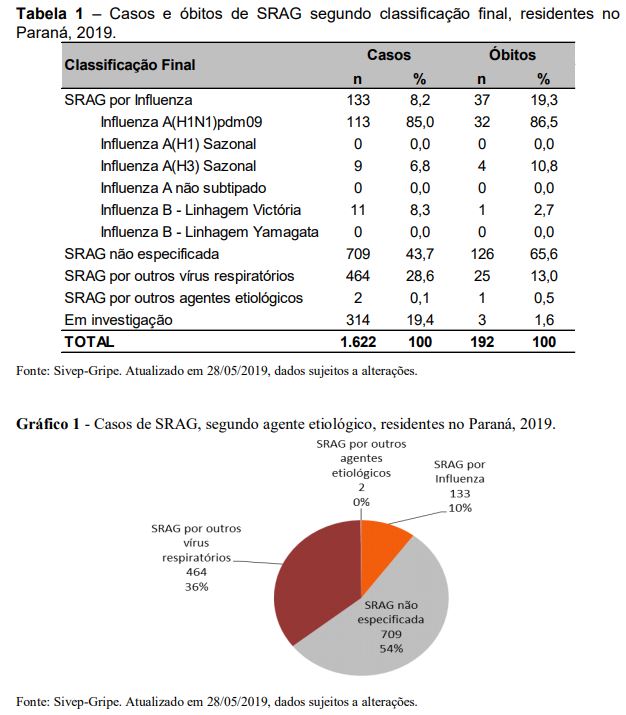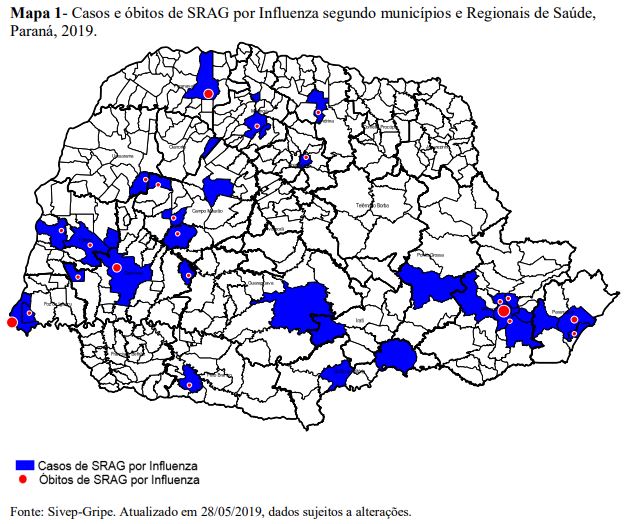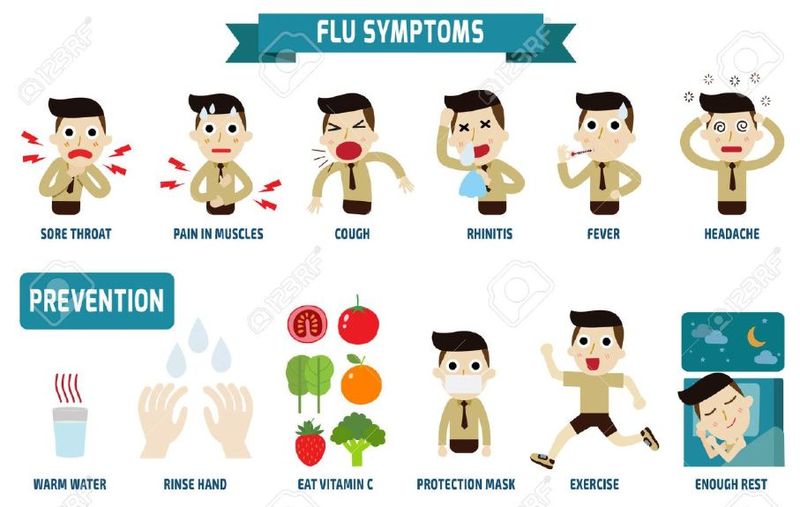Influenza
Updated: 05/28/2019
Source: World Health Organization, Ministry of Health (MS), State Secretariat of Health of Paraná
THE DISEASE
Influenza is an acute respiratory infection caused by viruses A and B. Virus A is associated with epidemics and pandemics.It is a seasonal virus that has an increase in the number of cases between the coldest seasons, and there may be years with less or greater circulation of the virus. Usually each year more than one type of influenza circulates concomitantly (example: influenza A (H1N1) pdm09, influenza A (H3N2) and influenza B).
The disease has a sudden onset and, in most cases, has a spontaneous cure, between seven and ten days. In some situations, complications such as pneumonia and respiratory failure can occur, forming the Severe Acute Respiratory Syndrome (SARS). These complications are more common in more vulnerable groups, such as people over 60, children under two years of age, pregnant women and those with chronic diseases.
MAIN SYMPTOMS
- Sudden fever;
- Cough;
- Sore throat;
- Headache;
- Muscle aches;
- Joint pain;
- Back pains;
- Shortness of breath, tiredness;
- Chill.
Fever is the most important symptom and lasts around three days. Respiratory symptoms such as coughing and others become more evident with the progression of the disease and generally remain three to five days after the disappearance of the fever. Some cases present severe complications, such as pneumonia, requiring hospitalization. Due to the common symptoms, it can be mistaken for other respiratory viruses that cause a cold.
RECOMMENDATIONS
Individuals with flu-like symptoms are advised to:
- Avoid leaving home during the disease transmission period (up to 7 days after the onset of symptoms);
- Restrict work environment to prevent dissemination;
- Avoid agglomerations and closed environments, trying to keep the environment ventilated;
- Adopt healthy habits, such as balanced diet and fluid intake;
* The health service should be sought immediately if you have any of these symptoms: difficulty breathing, bluish or purple lips, pain or pressure in the abdomen or chest, dizziness or vertigo, persistent vomiting, seizure.
To avoid the flu or its transmission, preventive measures should also be taken, such as: cleaning the hands with soap and water or using alcohol gel, especially after coughing or sneezing; after using the bathroom before eating, before and after touching the eyes, mouth and nose; Avoid touching eyes, nose or mouth after contact with potentially contaminated surfaces (handrails, benches, door handles, etc.). Maintain healthy habits such as balanced eating, fluid intake and physical activity.
People with influenza-like illness should avoid direct contact with other people by abstaining from their work, study, social activities or agglomerations and collective environments. Planning a trip should consider the epidemiological situation of the destination beforehand.
Travelers to areas with evidence of circulation of Influenza A (H1N1), (H5N1) and (H7N9), are advised to avoid contact with live animals in markets or farms.
Symptomatic patients should seek treatment and immediate notification if they experience fever, cough, sore throat or dyspnoea, with a history of exposure in the last 15 days to affected areas.
PREVENTION
- Wash hands frequently with soap and water;
- Avoid touching eyes, mouth and nose after contact with surfaces;
- Do not share personal objects;
- Cover the mouth and nose with the forearm or disposable tissue when coughing or sneezing;
- Keep the rooms airy with doors and windows open.
SURVEILLANCE
Influenza surveillance in Brazil is composed of sentinel surveillance for influenza-like illness (OS), severe acute respiratory syndrome (SARS) in intensive care unit (ICU) patients, and universal surveillance of SARS. Sentinel surveillance relies on a network of units distributed in all geographical regions of the country and its main objective is to identify circulating respiratory viruses and to monitor the demand for care for this disease. SRAG's universal surveillance monitors hospitalized cases and deaths in order to identify the behavior of influenza in the country to guide decision making in situations that require new positions from the Ministry of Health and State and Municipal Health Secretariats. The data are collected through standardized forms and inserted into information systems.
If in doubt, the population can call the Health Department of the State of Paraná: 0800 643 8484
Attention to health professionals:
- (41) 3330 4561 (DVVTR)
- (41) 3330-4492 (CIEVS)
- (41) 3330-4493 (CIEVS)





